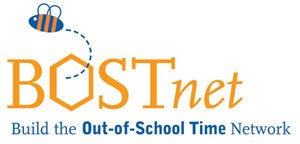A recent article in the Boston Globe--"The Other Kind of Smart"--highlights the growing movement to teach emotional intelligence in schools. Over the past few years, the article notes, researchers have learned much about the value of social and emotional knowledge and the techniques for teaching this knowledge to children and youth. These studies, coupled with emerging brain research, has elevated the ideas of education reformers that curricula designed to address skill building in social and emotional knowledge should become as standard to the school day as reading, writing and arithmetic. Moreover, these same reformers believe that the new research will play well within the Obama Administration's education agenda and their reliance on "data-driven decision making."
While we should all welcome improvements to our public school system, none of this is new to thousands of afterschool and youth programs across the state. For more than a century, youth programs embedded in settlement houses, outdoor clubs, immigrant fraternal societies and other organizations have been engaging youth in ways that build their social and emotional intelligence. These programs and their more current iterations teach children pro-social behaviors, civic responsibility, conflict resolution and group dynamics in a safe, flexible, and uncompetitive environment.
There is abundant research that points to the value of youth programs as unique developmental settings grounded in healthy adult-child relationships and peer learning that connects directly to the individual needs of children. Let's continue to infuse our schools with innovative approaches to teaching and learning, but lets also build upon the youth development opportunities that aready exist in our communities. By their very nature, these programs compliment school day learning. However, we will fail the field if we do not recognize that their value is much broader than supporting academic achievement and providing enriching activities. It is somewhat ironic that at the same time advocates are pushing our schools to integrate more social and emotional learning in children, we are asking afterschool programs to adopt the expectations of schools and greater alignment with academic learning.
A few years ago my son started in his first afterschool program. At the time, he was dealing with a varity of changes in his life--new city, new school and the very confusing and scary reality of adjusting to life in two homes. As a parent, I saw the effects of this stress everyday. I picked him up during his first week in afterschool and he was sitting in a circle with a group of kids and a staff member. As we were walking home I asked him what they were doing. He said, "we were talking about our emotions." It was a profound moment for me that ultimately got me engaged in working in this field. With three years of afterschool participation in this same program my son has thrived academically, but more importantly as a developing human being. We need to value what these programs do and provide them with the tools and the permission to work with children and youth in profound and meaningful ways.
16 years ago

1 comment:
Nice Article,
Thanks for sharing this wonderful post. I like it very much
:)
child and youth worker
Post a Comment